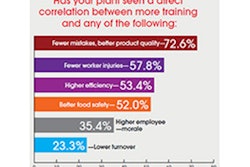WASHINGTON (AP) — The Centers for Disease Control and Prevention says some Texas cases in a severe stomach bug outbreak last summer have been linked to Mexican cilantro.
The CDC said Wednesday that the cilantro came from Puebla, Mexico, and was served at "Mexican-style" restaurants and sold in a single grocery store. The CDC did not identify the Mexican producer, the restaurants or grocery store.
The Food and Drug Administration, which investigates the source of outbreaks, also declined to name any of the establishments.
"Because the investigation remains open, we cannot name where the cilantro was served or the name of the farm in Mexico," FDA spokeswoman Juli Ann Putnam said. Putnam said the agency has increased surveillance on cilantro coming into the country from Mexico.
All told, 278 people in Texas were sickened by cyclospora. Not all those illnesses were traced back to the cilantro.
There were at least two separate cyclospora outbreaks last summer, sickening 643 people in 25 states. The other outbreak was linked to salad mix served at Olive Garden and Red Lobster restaurants in Iowa and Nebraska. It is still unclear what caused the illnesses in other states.
The outbreak in Iowa and Nebraska was linked to Taylor Farms de Mexico, the Mexican branch of a California company that supplied the Olive Garden and Red Lobster restaurants. Taylor Farms de Mexico shut down in August after the illnesses were discovered, but the FDA allowed the company to restart operations after it conducted inspections of the facilities and found no safety violations.
The CDC said the outbreaks were finished and the products were out of stores.
Cyclospora usually is found outside the United States and is caused by parasites that are spread when people ingest food or water contaminated with feces. People who are exposed usually become sick after about a week and have diarrhea and other severe, flu-like symptoms that can last from a few days to several months if not treated with antibiotics.





















